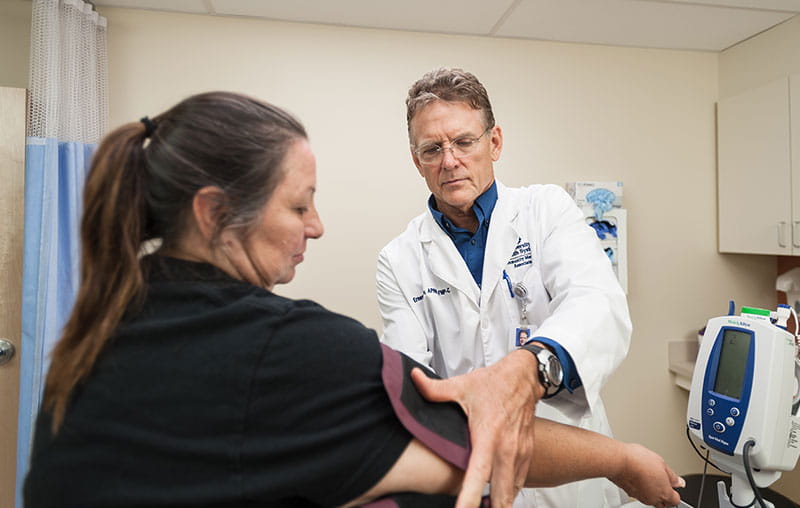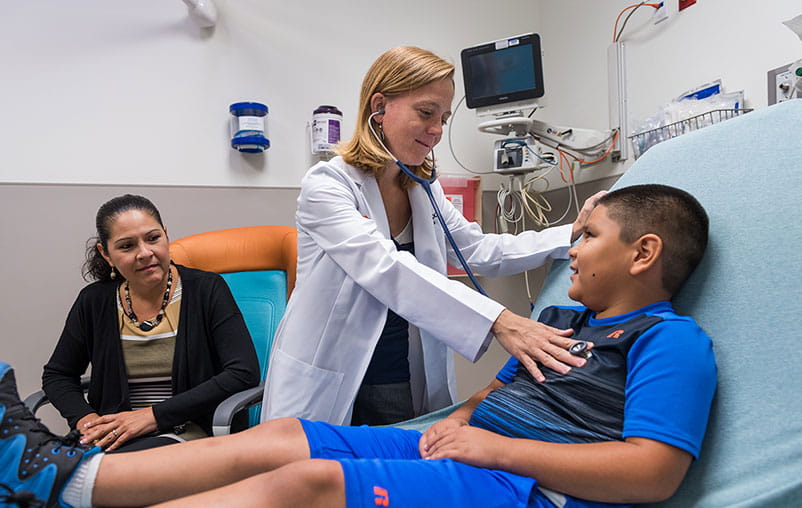Children’s author Wendy Mass’s book The Candymakers is a playful mystery about four children invited to compete in a candy-making competition. The story becomes clearer as Mass reveals each child’s back-story and the reader understands their motivations and struggles. In it, Mass reminds readers to “Be kind, for everyone you meet is fighting a battle you know nothing about.”
The Candymakers teaches an important lesson for everyone, not just its youthful audience. People struggle with difficult moments throughout life. Some show this struggle on their faces and through their actions. Others hide it inside. These difficult experiences, or traumas, have widespread effects on our physical and mental health, which makes understanding trauma critically important for healthcare workers.
From “What’s wrong with you?” to “What happened to you?”
This concept is the reason behind a new initiative at University Health — a public health approach known as trauma-informed care. The Center for Health Care Strategies describes a trauma-informed care approach as one that “acknowledges that health care organizations and care teams need to have a complete picture of a patient’s life situation — past and present — in order to provide effective health care services with a healing orientation.”
Trauma-informed care is a universal approach to how we interact with people who have experienced trauma, whether physical, emotional, or psychological. From a patient perspective, trauma-informed care fosters recovery and healing through safe and collaborative relationships with their caregivers. The goal is to avoid inadvertently re-traumatizing patients while promoting collaborative and trusting care.
Compassion for every patient
Staff from our neurology team recently cared for a patient known to be at risk for falls. The staff assisted her whenever possible, but would still sometimes find her on the floor after a fall from her bed. She also repeatedly expressed her desire to be back at home. At one point, concerned for her safety, her care team began to wonder if restraints would be appropriate or if they should call the doctor and ask for an emergency medication.
Reflecting on the woman’s falls from bed and her insistence on wanting to leave the hospital, Luis Santos, social work manager for the Behavioral Health Care Coordination team, stepped in with a different approach. Luis knew it was important to understand what other factors may be contributing to her frequent falls. Sitting at her bedside, Luis talked with her and asked, “Did something happen to you? What should we know about your way of coping?”
The patient told Luis, “The last time I was in a hospital, forced to stay in place, I wasn’t allowed to walk. I couldn’t move around at all. I was abused and made to feel helpless. I just don’t want to lie in this bed all day.”
Luis instantly recognized that this prior trauma was complicating her doctors’ and nurses’ care for her. He worked with her care team to determine a routine that would help her cope with her past experience and build trust between her and the people helping her get better. For the rest of her hospital stay, the Neurology staff scheduled wheelchair tours of the medical floor every eight hours.
She didn’t fall out of her bed again.
What trauma-informed care means for you
This is one example of how University Health is implementing a more trauma-informed care practice, one that strives to create a safe, welcoming and supportive environment where patients and staff are empowered to take part in their own wellbeing. In addition to treating the symptoms of trauma through best practices, we will integrate trauma-informed approaches into our policies and daily practices, while actively reducing re-traumatization.
By understanding each patient’s history of trauma, our staff will provide a more informed and compassionate level of care to our community.
Sarah Sebton joined University Health as director of Trauma-Informed Care to implement this new approach to compassionate patient care in 2020.
For more information, visit the Trauma-Informed Care Implementation Resource Center.




